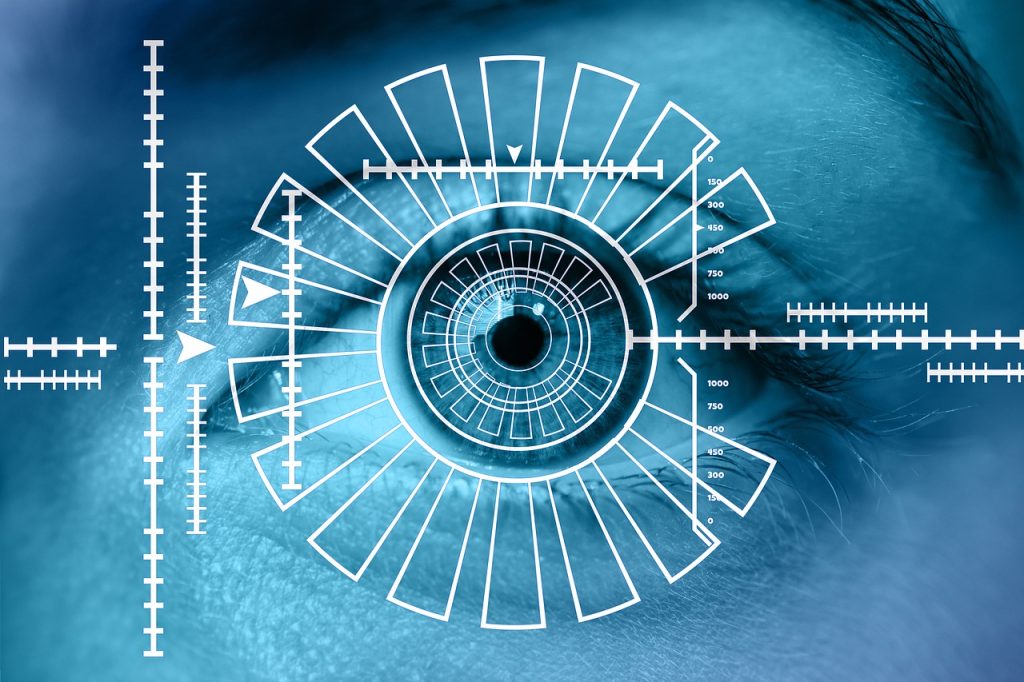Biometric technology, once limited to high-security settings, has become a common feature in everyday life. It is now seen as a key innovation in the security industry, playing a crucial role in protecting data, managing personal information, and securing properties. This change is transforming the locksmithing industry, offering both new opportunities and challenges for professionals.
This article explores biometric security, covering its history, current trends, and insights from a locksmith’s perspective, along with the pros and cons of this technology.
What is Biometric Security?
Biometric security uses unique physical and behavioral characteristics—like fingerprints, facial and eye scans, hand shapes, voice recognition, typing patterns, and walking styles—to verify and grant access. This approach offers a more secure alternative to traditional keys, PINs, and passwords, setting a new standard in both personal and public safety.
A Brief History of Biometrics
The technology has a long history, dating back to the end of the 19th century when the “Henry System of Fingerprint Classification” was developed in British India for criminal identification. Over the following decades, technological advancements led to the development of more sophisticated systems. Ultimately, the development of smartphones featuring fingerprint and facial recognition features has brought biometrics into the mainstream.
The popularity of biometric security has increased significantly in recent years, especially with its integration into smart home and security systems. Users enjoy the convenience, improved access control, and ease of use that these systems provide. For locksmiths, this trend represents an opportunity to broaden their current expertise listed here and offer new services to clients.
Biometric Security and the Locksmith’s Role
The rise of biometric security technologies provides additional opportunities for locksmiths to expand their roles beyond traditional lock and key services. Locksmiths are now increasingly involved in installing and maintaining advanced systems, like fingerprint and facial recognition locks. These systems require a strong knowledge of both hardware and software to ensure they operate correctly and securely.
Advantages for Locksmiths:
- Enhanced Security: Biometric systems offer a higher level of security, making them difficult to bypass. Locksmiths can leverage their expertise to ensure these systems are properly installed and maintained, providing clients with peace of mind.
- Convenience for Clients: With biometric systems, there’s no need for physical keys or remembering codes, which means fewer emergency calls for lost keys. Locksmiths can focus on providing installation and support services for these advanced systems.
- Audit Trails: Many biometric systems include logging features that record access details. Locksmiths can offer valuable insights and reports based on this data, enhancing their service offerings.
- Scalability: Adding or removing users from a biometric system is straightforward, which can be more efficient than rekeying traditional locks. This efficiency is a selling point for locksmiths when offering these solutions to businesses and large households.
- Integration Opportunities: As biometric systems can be integrated with other smart home technologies, locksmiths have the opportunity to offer comprehensive security solutions, positioning themselves as experts in modern security technology.
Challenges and Considerations:
- Initial Cost: The cost of biometric systems can be a barrier for some clients. Locksmiths need to clearly communicate the long-term benefits and security advantages to justify the investment.
- Technical Skills: As biometric systems involve both hardware and software, locksmiths must develop technical skills and possibly collaborate with IT professionals to offer complete support and maintenance.
- Privacy and Security: Handling sensitive biometric data responsibly is crucial. Locksmiths need to stay informed about privacy laws and best practices to reassure clients about data protection.
- Reliability Concerns: While generally secure, biometric systems can fail due to power outages or software glitches. Locksmiths should be prepared to offer solutions and support for these scenarios.
- Adapting to Client Needs: Factors such as aging or physical conditions can affect the usability of biometric systems. Locksmiths should be ready to provide alternative solutions or additional access methods.
- Keeping Up with Technology: The field of biometric security is rapidly evolving. Locksmiths must continuously update their knowledge and skills to stay current with the latest developments and offer the best possible solutions to their clients.
Closing Thoughts: Future Perspectives
The future of biometric security looks very promising, with new developments making these systems even more secure. One exciting innovation is multi-modal biometrics, which uses a combination of methods like fingerprints, facial recognition, and voice recognition to verify someone’s identity. This multi-layered approach makes it much harder for unauthorized people to gain access.
The integration of artificial intelligence (AI) enhances the accuracy and reliability of these systems, minimizing errors and efficiently managing large data sets to improve security.
As biometric technologies become more affordable, their usage is expected to grow. This presents locksmiths with the opportunity to learn new skills and offer more advanced services, staying relevant in a rapidly evolving market.
Biometric technology is reshaping security by providing enhanced protection and introducing new challenges. For locksmiths, this evolution offers a unique chance to expand their services and maintain their vital role in safeguarding properties and personal information in our digital age.



